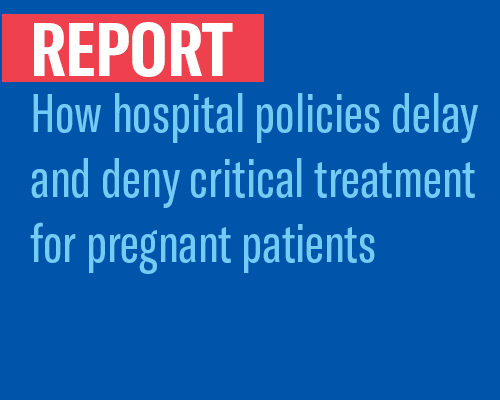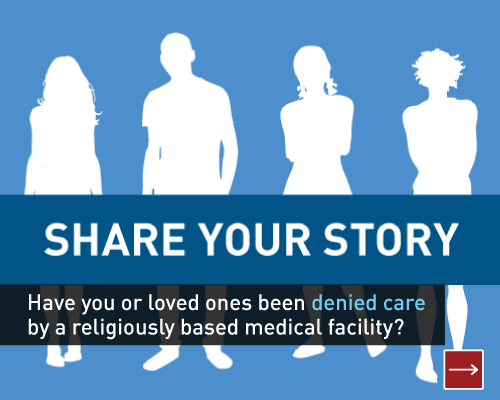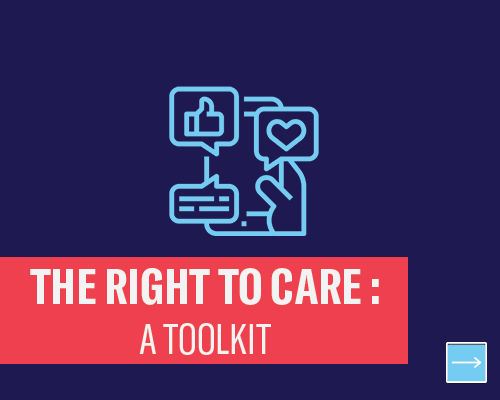Healthcare Access
The ACLU of Washington believes that everyone should have access to lawful best care medical treatment. Yet in Washington state religious health systems, and even public hospital districts, are denying Washington residents access to important health care services. The ACLU of Washington is enforcing our state laws and fighting back against the use of religion to discriminate in order to ensure Washington residents have access to reproductive, end-of-life and LGBT related health care services, referrals and information.







